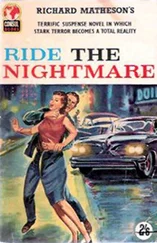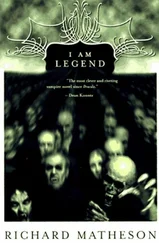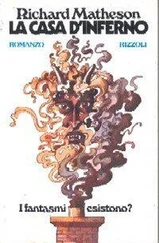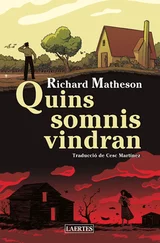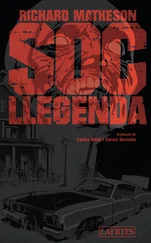I didn’t dare.
Nonetheless, I had just begun to feel a flutter of hope when something seemed to film across Ann’s eyes-something almost visible-as though she’d just caught sight of something for an instant, then been forcibly removed from it-doubtless by herself. Was that the process which kept her prisoner here?
She turned away from me and looked across the polluted greenness of the pool. I might have vanished from her sight.
It was a poor beginning.
The sheltering of melancholy

WHEN SHE SPOKE AT LAST, I COULDN’T TELL WHETHER SHE WAS addressing me or herself.
“My pine trees died too,” she said. “People kept telling me they would but I didn’t believe it. I believe it now.” She shook her head slowly. “I try to water them but the pressure is off. They must be repairing pipes in the neighborhood or something.”
I don’t know why it struck me with such vivid force at that moment. Perhaps the mundane quality of what she said. But I remembered Albert’s words.
There is no point in your trying to convince her that she’s not alive; she thinks she is .
That was the true horror of this situation. If she knew that she’d committed suicide and that this was the end result, some kind of approach might be made. As it was, there could be no possible meaning to this plight for her, no logic whatever to this dismal state in which she found herself.
I really didn’t know what to say, yet, once more, heard myself speaking. “I have water in my house,” I told her.
She turned as though surprised by my continued presence. “How can that be?” she asked. She looked confused and irritated. “What about electricity?”
“I have that too,” I said, realizing, then, why I’d spoken as I had. I was hoping that she’d discover, by comparison, that what was happening in her house was, logically, unrealistic and, thus, be led to examine her surroundings more closely.
“What about your gas service?” I asked, pursuing the idea.
“That’s off too,” she said.
“Mine isn’t,” I replied. “What about your telephone?”
“It’s . . . out of order,” she said. I felt a momentary glimmer of expectancy at her tone-one which asked of itself: How can this be?
“I don’t understand,” I said, trying to press my advantage. “It doesn’t make sense that all your services would be out at the same time.”
“Yes, it’s . . . odd.” She stared at me.
“Very odd,” I said. “That only your house would have none of them? I wonder why? ”
I watched her carefully. Was any degree of awareness reaching her? I waited anxiously to see.
I should have known.
If convincing her was all that simple, in all likelihood someone would have done it already. I knew that as a look of apathy replaced the one of doubt-replaced it instantly . She shrugged. “Because I’m on a hilltop,” she said.
“But why-?”
She broke in. “Would you call the phone company for me and tell them my service is out?”
I stared at her, confounded by my own frustration. For a moment, I had a reckless urge to tell her everything directly-who I was and why she was there. Something held me from it though, sensing the peril of attempting to convince her that way.
Another idea occurred.
“Why don’t you come to my house and call them yourself?” I asked.
“I can’t,” she said.
“Why?”
“I . . . don’t leave,” she said. “I just-”
“Why not?” My voice was edged with impatience now, I was so disturbed by my failure to help her in the least.
“I just don’t leave,” she repeated. She averted her face but, before she did, I saw the beginning of tears in her eyes.
I didn’t think but reached out automatically to comfort her. Ginger growled and I drew back my hand. Would I feel it if she attacked, the thought occurred? Could I bleed, suffer pain?
“The pool looks so awful,” Ann said.
That sense of cold despair again. How terrible her existence was, spending endless days in this place, unable to do anything to ease its drab appearance.
“I used to love it out here,” she said, unhappily. “It was my favorite place. Now look at it.”
My question was answered. I could suffer pain at that level. I felt it deeply as I looked at her, recalling how she used to come out on the deck each morning with her coffee, sit in the sunshine in her nightgown and robe and gaze across the crystal water of the rock-edged pool, looking at the lush planting we’d put in. She had loved it; very much.
Her tone grew sardonic. “Some exclusive area,” she said.
“Yet everything works at my house,” I said, trying again.
“How nice for you,” she responded coldly; and I knew, in that instant, that no approach could work twice. I was back to square one in this dreadful game, forced to start all over again.
Silence once more. Ann standing motionless, looking across the ugly expanse of the pool, Ginger beside her, eyes fixed on me. What was I to do? I wondered in discouragement. It seemed as though the more time passed, the less aware of possibilities I became.
I forced myself to concentrate. Was that the danger Albert had warned me about? That I would let these dismal surroundings draw me in and make me part of them?
“You have children?” I asked on impulse.
She turned to look at me with distant appraisal. Then she answered. “Four.” Looking away again.
I was going to ask about them when I decided to attempt, once more, to set up, in her mind, a series of provoking “coincidences.” The area of children hadn’t been approached yet.
“I have four children too,” I said. “Two daughters and two sons.”
“Oh?” she said without turning.
“My two girls are twenty-six and twenty,” I told her. “My sons are twenty-three and seventeen.” Was I pressing too far? I wondered.
She was looking at me again. Her expression hadn’t changed but it seemed to me there was a tightening around her eyes.
I braced myself and said, “My children’s names are Louise, Marie, Richard and Ian.”
Now she was drawing back again, a distrustful look on her face. The expression of a woman who sensed that she was being baited but didn’t know how or why. I felt a pang of fear at that expression. Had I made a dreadful mistake?
Even as I wondered that, I heard myself ask, “What are your children’s names?”
She said nothing.
“Mrs. Nielsen?” I said. I’d almost called her Ann.
That look of filming across her eyes again-and sudden, gutwrenched realization on my part.
No matter how close I came, I could never reach her. Whenever I came too close, something built-in would affect her, causing her to cut herself off. Already, she had mentally shrugged off my words, perhaps blanked them out entirely.
Yet still I went on with a kind of blind, unwilling dread. “My older girl is married and has three children of her own,” I said. “My younger girl-”
I broke off as she turned away and started toward the house, the dead bird dropping, unnoticed, from her hands. I started after her but Ginger, at her heels, looked back with a warning growl. I stopped and watched Ann moving off from me.
Had the end already come?
Suddenly, Ann glanced aside and made a sickened noise, then ran inside the house through the family room doorway, sliding the glass door shut with a bang.
I looked at the ground where she’d glanced and saw a huge tarantula crawling over a rock.
I groaned, not out of fear of the tarantula but at the realization that one of Ann’s deepest fears was embodied here. She’d always been terrified of tarantulas, made virtually ill by the sight of them. How hideously predictable that her private hell would include these giant spiders.
Читать дальше






